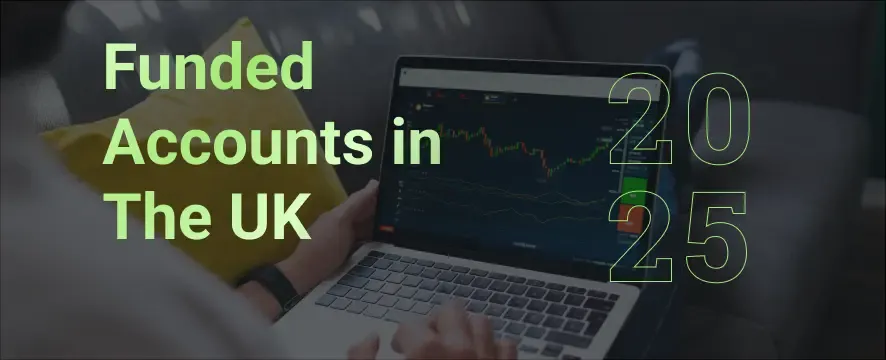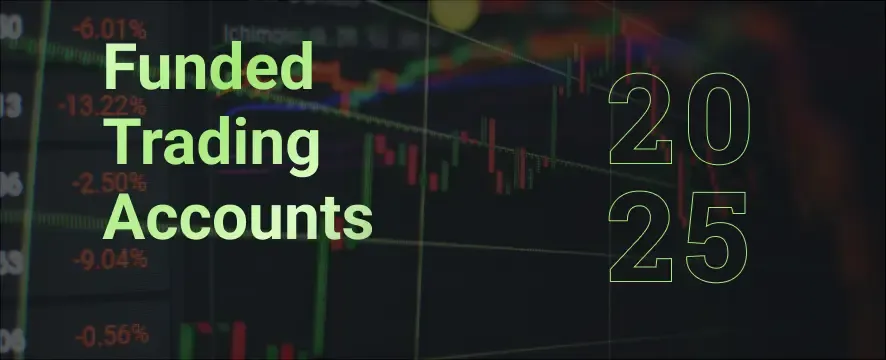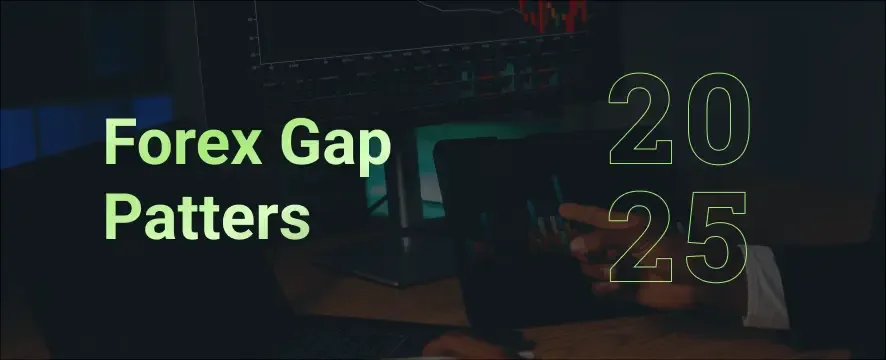6 min read
Share
In this article, we explore the rise of crypto, and the impact it could have on the forex market.

The traditional forex market has undergone a remarkable evolution over the last few decades. What initially began as an institutional trading avenue has transformed into a truly globally accessible marketplace, with daily trading volumes now exceeding $7.5 trillion.
This democratization of foreign exchange markets coincides with the emergence of digital currencies, fundamentally reshaping how traders approach currency trading.
The surge of cryptocurrencies has created ripples across the financial markets, introducing new dynamics that challenge conventional trading strategies.
From blockchain technology to decentralized finance, the cryptocurrency market offers more than just an alternative asset class - it presents a complete shift in how traders conceptualize currency exchange and market participation.
Understanding the Forex Market Evolution
The traditional forex market operates through an established network of financial institutions, where human traders and artificial intelligence systems execute trades in major currency pairs like the US dollar and Japanese yen.
Market movements follow reasonably predictable patterns influenced by central banks, with regulatory frameworks providing stability for trading activities. Interest rates and geopolitical events continue driving traditional currency markets, while sophisticated risk management practices help maintain market order.
The emergence of cryptocurrencies has introduced parallel markets where trading never ceases. These digital assets operate through decentralized exchanges, challenging conventional market structures.
Blockchain technology enables innovative trading processes that increasingly influence traditional currency markets, while market sentiment can shift rapidly across both spaces.
The cryptocurrency market offers unique characteristics that complement and sometimes challenge traditional forex markets.
Trading Strategies in Modern Forex Trading
The relationship between traditional currencies and digital assets continues to drive an evolution in trading strategies. Some brokers now incorporate cryptocurrency trading alongside conventional pairs, enabling traders to capitalize on cross-market dynamics.
Moreover, institutional participants monitor cryptocurrency market sentiment as carefully as they track central bank policies, as major currency pairs increasingly respond to blockchain market developments.
Cross-Market Analysis and Execution
Traders seeking to capitalize on both markets must develop sophisticated approaches to market analysis. Traditional technical analysis tools apply differently across forex and cryptocurrency trading, requiring adaptation of established strategies.
Market participants increasingly utilize artificial intelligence to identify correlations between traditional currency pairs and digital assets, while leveraging blockchain technology for enhanced execution capabilities.
Risk Management Across Markets
The high volatility characteristic of cryptocurrency trading demands robust risk management practices. Traders must balance exposure across traditional fiat currencies and digital assets while maintaining appropriate position sizes.
Financial institutions develop integrated risk frameworks that account for the unique characteristics of each market, particularly focusing on the intense competition and profit potential in cryptocurrency trading.
Technology Transforming the Forex Market
Trading platforms are increasingly bridging the forex and crypto markets through unified interfaces. With the rise of smart contracts, many processes are automated, while leveraging blockchain technology enhances settlement efficiency.
Financial institutions utilize cutting-edge technologies to execute trades across market boundaries, reducing transaction costs and improving market access.
Infrastructure Evolution
Modern trading platforms provide sophisticated tools for both forex and cryptocurrency trading. Blockchain technology enables new forms of market access, and the integration of artificial intelligence in trading systems enhances execution efficiency and market analysis capabilities, transforming how traders interact with both markets.
Data Analytics and Market Intelligence
Advanced analytics tools process vast amounts of data across both markets, enabling traders to identify opportunities and manage risks effectively. Machine learning algorithms analyze market trends and trader behavior, providing insights for strategy development.
This technological advancement particularly benefits retail traders, who can now access sophisticated analysis tools with just an internet connection.
Regulatory Developments and Market Integration
The markets authority landscape continues evolving as regulators address both traditional fiat currencies and digital assets. Central bank digital currencies represent a significant bridge between conventional forex trading and cryptocurrency innovation.
The intense competition between these two markets drives development in payment systems and cross-border transactions.
Compliance Frameworks
Financial institutions must navigate evolving regulatory requirements across traditional forex markets and cryptocurrency trading. The development of central bank digital currencies introduces new considerations for market participants, while traditional financial markets adapt to accommodate digital assets.
Cross-Border Considerations
International regulatory coordination influences both forex and cryptocurrency markets. The evolution of different currencies and trading processes creates new challenges and opportunities for market participants. Decentralized finance protocols introduce alternative approaches to cross-border transactions, potentially transforming traditional forex trading.
Market Structure and Liquidity Dynamics
The structure of foreign exchange markets continues evolving as cryptocurrency trading gains prominence. Traditional forex brokers adapt their services to include digital assets, while new market makers emerge to provide liquidity across both spaces.
The interaction between these two markets creates unique price discovery mechanisms and trading opportunities.
Decentralized exchanges challenge conventional market structures, while blockchain technology enables innovative trading processes. Market participants leverage these innovations to enhance trading efficiency and reduce transaction costs.
Meanwhile, the intense competition between traditional and emerging platforms drives continuous improvement in market access and execution capabilities.
Impact on Financial Institutions
Traditional financial institutions are adapting their operations to accommodate cryptocurrency trading alongside their forex market activities. Banks and investment firms are continually developing new capabilities to serve clients interested in both markets. The integration of blockchain technology influences settlement processes and risk management practices.
Institutional adoption of cryptocurrencies creates new relationships between asset classes. Market movements in major currency pairs increasingly correlate with cryptocurrency trends, requiring sophisticated analysis frameworks.
Financial institutions leverage cutting-edge technologies to maintain competitive advantages in this evolving landscape.
Future Outlook for Trading Activities
The convergence of traditional forex markets and cryptocurrency trading continues to accelerate through technological advancement and institutional adaptation.
Central bank digital currencies bridge traditional currency markets with digital innovation, while trading platforms integrate both spaces seamlessly.
Market participants must master traditional forex trading principles while embracing blockchain market dynamics. Risk management practices need to evolve to address high volatility and cross-market correlations, as artificial intelligence enhances trading activities across asset classes.
The profit potential is attracting intense competition, driving further innovation in both spaces.
Final Thoughts
The rise of cryptocurrencies has transformed forex trading beyond simple technological advancement. Trading strategies now incorporate cross-market signals, while financial institutions continue to develop sophisticated frameworks spanning both spaces.
As markets mature, successful traders will leverage the advantages of each while managing distinct risks.
The integration of traditional forex markets and cryptocurrency trading creates unprecedented opportunities. Exchange markets evolve as decentralized finance reshapes conventional structures. This convergence demands new skills, but rewards participants who successfully navigate both worlds.
The future of currency trading lies in understanding and adapting to this increasingly interconnected landscape.
Also read

17 min read
Discover essential tips for selecting the right funded trader prop firm to match your trading goals. Read the article to find your perfect trading partner.

13 min read
Discover what a funded account is and how it can benefit UK traders in 2025. Get essential insights and tips to navigate your trading journey. Read more!

13 min read
Discover how funded trading accounts provide access to professional capital without financial risk. Read on to learn more and start your trading journey.

20 min read
Discover what a funded firm is and how prop trading companies operate. Gain insights into their benefits and challenges.

10 min read
What are weekend gap patterns in Forex, and how can they be exploited to make profit?
Join our community
Get an insight from other users about SeacrestFunded and their experiences. 131K+ members and counting
